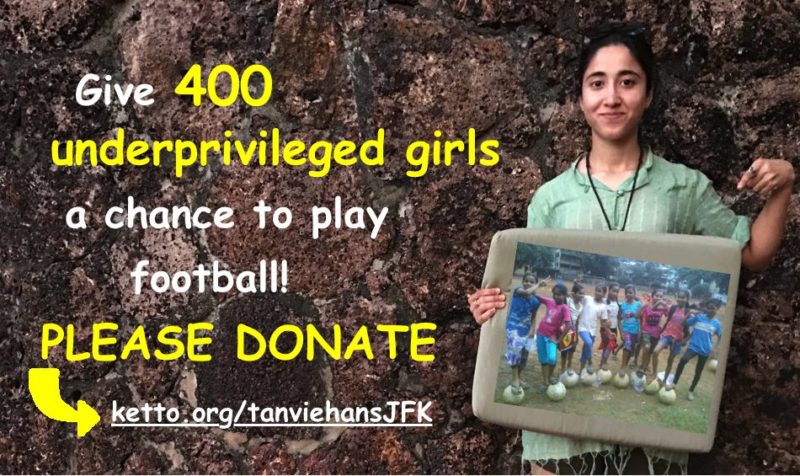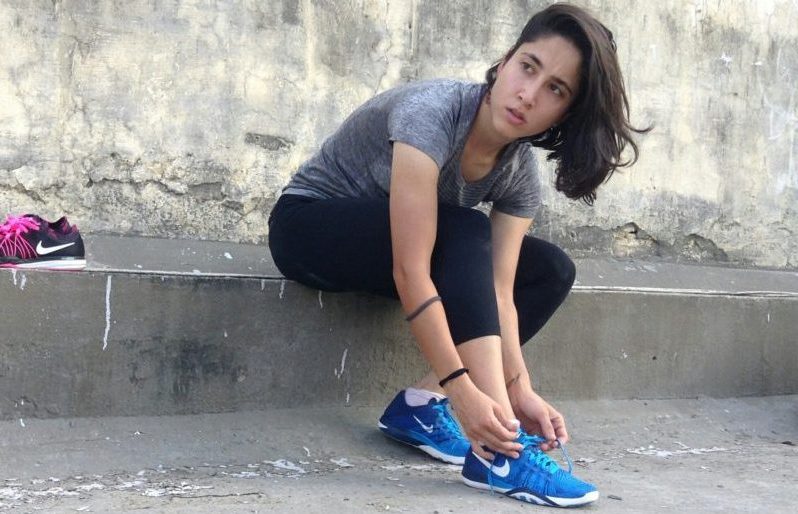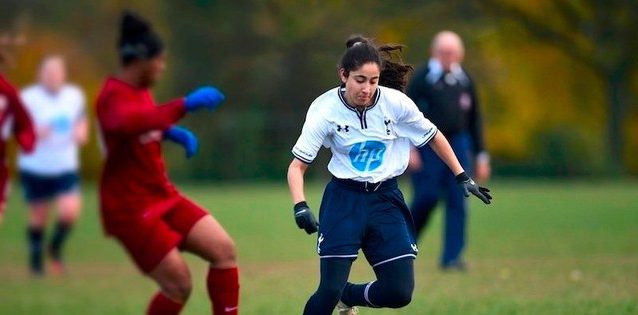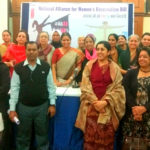Last year, the country’s sporting achievements were defined predominantly by women. Whether it was PV Sindhu’s silver for badminton, Sakshi Malik’s bronze for wrestling at Rio Olympics, Deepa Malik’s silver at the Paralympics or the women cricket team’s victory at Asia Cup, women were at the centre stage when it came to getting laurels for the country at the world’s biggest sporting arenas.


In line with this, we came across a profile of footballer Tanvie Hans. A student of Vasant Valley in Delhi, the first Delhi school to have a girl’s football team, she has been playing football since childhood.
As per the article, she did her under-graduation at Jesus and Mary College, and led the team as the captain in her final year. In 2011, on moving to England for her masters from the University of Exeter, she played for her university team.
She was selected for Tottenham Hotspurs Women’s FC. Her skills and her dedication got her to the list of the top 30 players. Currently, she has moved base to India and is undertaking a lot of social initiatives. She started the GiftOfFootball, wherein one can gift a football any child, who values it and will use it. She was also part of Nike’s Da Da Ding ad, which celebrated women in sports.


We were fortunate to have a brief conversation with Tanvie herself on sports and patriarchy.
1) What does it mean to be a woman in sports in India?
Its difficult, that’s for sure. The society grooms us to be a certain way, and sporty girls usually don’t tick all the boxes of a ‘well groomed Indian girl’. That said, I’ve been sporty since I was really small, and I just stuck to being me, regardless of what I was told I should be. Eventually all those same people who used to try to mould me into something different, are now proud of me for the things I’ve achieved. Fortunately, I have always had the support of my parents as well, which has been a big factor in my journey thus far.
2) What challenges do you feel woman sportspersons face?
I think, people are still unaware of women athletes in this country. Even now people often ask whether we even have a women’s national football team, or any national sports team for that matter. Fortunately, now with the success of sportswomen like PV Sindhu, Saina Nehwal, Sania Mirza and others, I think our society is beginning to ‘accept’ that women can be athletes. The ecosystem however doesn’t support us in the same way it supports the men, in the sense that we have much fewer opportunities, very few competitions through the year, the facilities and training are not of the same quality etc, which ultimately stunts our growth in the sport. Therefore, when an Indian female athlete does well internationally, it truly is commendable, because she’s done it despite all these hurdles. I really believe, women’s sport all around the world is driven by true passion and love for the game. Women athletes don’t do it for the money or the fame, because that’s not a given as it is for the men on success, they truly do it for the love of the sport. And perhaps to see their country’s flag fly the highest.


3) How can sports be used for betterment of society, and challenging patriarchy?
I can already see a slow change, thanks to the recent success of our female sportswomen. The same society that didn’t want to have a girl-child is now aware and celebrating the success of our women! Movies are being made on these ladies! I’m sure our women will continue to succeed in many fields internationally, and this will bound to change the mindsets of the people over a period of time. I, in fact, have always encouraged people to engage in sports and for kids especially to play sports from a young age because it truly helps you develop as a holistic individual. It encourages a healthy competitive spirit. It teaches you how to deal with success and failure with equal grace. It teaches you to handle your emotions, to be team-player and an player on your own as well. These are life-skills that traditional education cannot teach, and only sports can. And at that age, girls and boys usually play sports together. ultimately, If every child grew up to be a holistic, driven, liberal individual, our society will not face the issues it is today.
At Centre for Social Research, we have always put in efforts to encourage women in sports. Our project with Global Giving, where we raised funds for girls’ education, also focused on ensuring that apart from academics, the girls also engaged in extra curricular activities. Therefore, chatting with Tanvie was inspiring, and we hope that other girls and families look to her, and pursue sports as a career!
Discuss this article on Facebook





